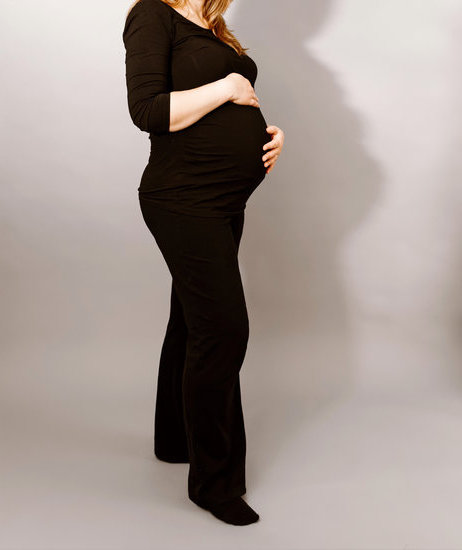Pregnancy is a critical period in a woman’s life that requires special attention to nutrition. Nutrition issues related to pregnancy can have a significant impact on the health of both the mother and the developing baby. It is crucial for pregnant women to understand and meet their specific nutritional needs in order to support the growth and development of their child, as well as maintain their own health throughout the pregnancy.
During pregnancy, a woman’s body undergoes complex changes that require additional nutrients to support the growing fetus. Understanding these nutritional needs is essential for ensuring a healthy pregnancy. However, many pregnant women face common nutrition issues such as deficiencies, weight management challenges, and dietary discomfort which can affect their overall well-being.
In this article, we will explore the importance of nutrition during pregnancy, the specific nutritional needs of pregnant women, common nutrition issues faced during pregnancy, and the impact of nutrition on the health of the baby. Additionally, we will discuss key nutrients required during pregnancy, dietary recommendations for pregnant women, how to overcome nutrition challenges during pregnancy, and the role of prenatal supplements in supporting pregnancy nutrition.
Ultimately, prioritizing proper nutrition can lead to a healthier and more successful pregnancy journey.
Understanding the Nutritional Needs of a Pregnant Woman
During pregnancy, a woman’s body undergoes significant changes to support the growth and development of the baby. As a result, it is crucial for pregnant women to adopt a well-balanced diet that meets the increased nutritional demands of this stage in life. Proper nutrition during pregnancy is essential for the health and well-being of both the mother and the developing fetus.
Nutrition issues related to pregnancy can arise from inadequate intake of essential nutrients, excessive weight gain, or unhealthy eating habits. Some common nutrition issues faced during pregnancy include anemia due to iron deficiency, gestational diabetes resulting from high blood sugar levels, and inadequate weight gain due to poor eating habits.
Adequate nutrition during pregnancy plays a critical role in determining the health outcomes of the baby. Proper nutrition has been linked to lower risks of birth defects, preterm birth, low birth weight, and other complications. It also contributes to the overall growth and development of the baby’s organs and tissues.
| Nutrition Issue | Impact |
|---|---|
| Iron Deficiency Anemia | Risk of preterm birth and low birth weight |
| Gestational Diabetes | Increased risk of preeclampsia and macrosomia (large baby) |
| Inadequate Weight Gain | Risk of delivering a small or preterm baby |
Common Nutrition Issues Faced During Pregnancy
During pregnancy, women may face various nutrition issues that can impact their health and the health of their baby. One common issue is the challenge of meeting increased nutritional needs while experiencing symptoms such as nausea, vomiting, and food aversions. These symptoms can make it difficult for pregnant women to consume an adequate and varied diet, leading to potential nutrient deficiencies.
Another common nutrition issue related to pregnancy is the risk of developing gestational diabetes. This condition occurs when a woman’s body cannot produce enough insulin to meet the extra needs of pregnancy, leading to high blood sugar levels. Proper nutrition management is crucial for women with gestational diabetes in order to control their blood sugar levels and minimize potential complications for both themselves and their babies.
Additionally, some pregnant women may struggle with weight management during pregnancy, either gaining too much or too little weight. Both scenarios can have negative impacts on the health of the mother and the baby. It’s important for pregnant women to receive guidance on healthy weight gain goals and how to achieve them through proper nutrition and physical activity.
Effectively addressing these nutrition issues related to pregnancy requires personalized guidance from healthcare providers and registered dietitians who are knowledgeable about the specific needs and challenges faced by pregnant women. By addressing these issues proactively, women can improve their own health and give their babies the best start in life.
Impact of Nutrition on the Health of the Baby
During pregnancy, the nutrition of the mother plays a crucial role in determining the health and development of the baby. The mother’s diet directly impacts the growth, organ development, and overall well-being of the fetus. Poor nutrition during pregnancy can lead to various adverse outcomes for the baby, such as low birth weight, preterm birth, and an increased risk of chronic diseases later in life.
One of the most common nutrition issues related to pregnancy is inadequate weight gain. Inadequate weight gain during pregnancy can result in low birth weight for the baby, which is associated with an increased risk of complications both at birth and later in life. On the other hand, excessive weight gain during pregnancy can lead to macrosomia (large birth weight), which can also pose health risks for both the mother and the baby.
Moreover, poor maternal nutrition can adversely impact brain development in babies. Proper intake of essential nutrients like folic acid, iron, omega-3 fatty acids, and vitamin D is critical for the healthy neurological development of the fetus. Insufficient levels of these nutrients can lead to cognitive deficits and behavioral problems in children. Therefore, addressing nutrition issues related to pregnancy is paramount for ensuring optimal health outcomes for both mothers and their babies.
| Nutrition Issue | Impact on Baby’s Health |
|---|---|
| Inadequate Weight Gain | Low Birth Weight or Macrosomia |
| Poor Brain Development | Cognitive Deficits and Behavioral Problems |
Key Nutrients Required During Pregnancy
During pregnancy, the body’s nutritional needs increase to support the growth and development of the baby. It is essential for pregnant women to consume a well-balanced diet that provides all the necessary nutrients required during this crucial time. Some key nutrients required during pregnancy include:
Folic Acid
Folic acid, also known as folate, is a B vitamin that plays a vital role in preventing neural tube defects in the developing baby. It is important for pregnant women to consume foods rich in folic acid such as leafy green vegetables, citrus fruits, and fortified cereals. In some cases, healthcare providers may also recommend folic acid supplements to ensure adequate intake.
Iron
Pregnant women need more iron to support the increased production of blood and to ensure proper oxygen supply to the baby. Iron-rich foods include lean meats, poultry, fish, beans, and fortified cereals. For some women, iron supplements may be necessary to prevent iron deficiency anemia.
Calcium
Calcium is essential for the development of strong bones and teeth in the baby. Pregnant women should consume dairy products, fortified plant-based milk alternatives, tofu, and leafy green vegetables to meet their calcium needs.
Incorporating these key nutrients into a well-balanced diet can help address nutrition issues related to pregnancy and support the health of both the mother and baby. It is important for pregnant women to work with their healthcare providers or a registered dietitian to ensure they are meeting their specific nutritional needs during this critical time.
Dietary Recommendations for Pregnant Women
During pregnancy, a woman’s body undergoes significant changes and requires additional nutrients to support the growth and development of the baby. Ensuring a well-balanced diet is crucial for the health of both the mother and the baby. Here are some dietary recommendations for pregnant women:
Folate-Rich Foods
Folate is essential for preventing neural tube defects in babies. Pregnant women are advised to consume foods such as leafy greens, citrus fruits, beans, and fortified cereals to meet their folate requirements.
Iron-Rich Foods
Pregnant women need increased amounts of iron to support their expanding blood volume and the development of the baby. Foods such as lean red meat, poultry, fish, lentils, and spinach are excellent sources of iron.
Calcium-Rich Foods
Calcium is important for the development of the baby’s bones and teeth. Pregnant women should include dairy products, fortified plant milks, tofu, and leafy greens in their diet to meet their calcium needs.
In addition to these specific nutrients, it is important for pregnant women to ensure that they have a well-rounded diet that includes plenty of fruits, vegetables, whole grains, lean proteins, and healthy fats. Keeping hydrated by drinking plenty of water is also crucial during pregnancy.
It is vital for expectant mothers to work closely with healthcare professionals such as registered dietitians or nutritionists who can provide personalized guidance on meeting their nutritional needs throughout pregnancy and address any specific nutrition issues related to pregnancy they may encounter.
How to Overcome Nutrition Challenges During Pregnancy
Pregnancy is a crucial time for women to pay close attention to their nutrition, as it directly impacts the health of both the mother and the baby. However, there are several common nutrition issues related to pregnancy that women may face, making it challenging to provide the necessary nutrients for a healthy pregnancy. Here are some strategies to overcome these challenges:
- Meal planning: Planning meals in advance can help ensure that pregnant women are consuming a well-balanced diet that includes all essential nutrients.
- Healthy snacking: Keeping nutritious snacks readily available can prevent excessive hunger and help control cravings for unhealthy foods.
- Seeking professional guidance: Consulting with a registered dietitian or healthcare provider can provide personalized recommendations tailored to individual nutritional needs during pregnancy.
It is common for pregnant women to experience nausea, food aversions, and changes in appetite, which can affect their ability to consume a varied and nutrient-dense diet. It is also important for expectant mothers to address any specific dietary restrictions or food intolerances they may have. By implementing these strategies and seeking support when needed, pregnant women can work towards ensuring they receive adequate nutrition throughout their pregnancy.
Lastly, staying informed about healthy eating habits during pregnancy and being mindful of portion sizes is key. Additionally, maintaining an active lifestyle alongside a balanced diet supports overall maternal health and contributes positively to the baby’s development. Prioritizing good nutrition is vital for a successful and healthy pregnancy journey despite the potential challenges that may arise.
The Role of Prenatal Supplements in Pregnancy Nutrition
During pregnancy, ensuring that a woman receives adequate nutrition is crucial for the health and development of both the mother and the baby. One way to help bridge the gap between the nutrients needed and those consumed through diet alone is through prenatal supplements. These supplements are specifically designed to provide a pregnant woman with essential vitamins, minerals, and other nutrients that may be lacking in her diet.
Benefits of Prenatal Supplements
Prenatal supplements can provide a range of benefits for both the mother and the developing baby. For instance, folic acid is a key nutrient that helps prevent neural tube defects in the baby, and prenatal supplements can ensure that pregnant women get enough of this vital nutrient. Additionally, iron supplementation can help prevent anemia in expectant mothers, which is a common concern during pregnancy. Omega-3 fatty acids found in some prenatal supplements are also important for fetal brain development.
Choosing the Right Prenatal Supplement
When considering prenatal supplements, it’s important for pregnant women to consult with their healthcare provider to determine which supplement is best for them. Not all prenatal supplements are created equal, and some may contain higher levels of certain nutrients than others.
Healthcare providers can also take into account any existing health conditions or dietary restrictions when recommending a prenatal supplement. It’s essential to choose a supplement that meets individual needs while also being safe for both the mother and baby.
In summary, while obtaining necessary nutrients through a balanced diet is ideal during pregnancy, many women may benefit from taking prenatal supplements to address any nutritional gaps. These supplements can play a valuable role in supporting the health and development of both mother and baby, helping to mitigate potential nutrition issues related to pregnancy.
Conclusion
In conclusion, prioritizing nutrition during pregnancy is crucial for the health and well-being of both the mother and the baby. Understanding the specific nutritional needs of a pregnant woman and addressing common nutrition issues faced during pregnancy are essential steps towards ensuring a healthy pregnancy. The impact of nutrition on the baby’s health cannot be overstated, as it can affect their development both in the womb and later in life.
Key nutrients required during pregnancy, such as folic acid, iron, calcium, and omega-3 fatty acids, play a vital role in supporting the growth and development of the baby. It is important for pregnant women to adhere to dietary recommendations that focus on consuming a balanced diet rich in these essential nutrients. Overcoming nutrition challenges during pregnancy can be achieved through education, support from healthcare professionals, and access to nutritious foods.
The role of prenatal supplements in pregnancy nutrition should not be overlooked, as they can help bridge any potential nutritional gaps. However, it is important for pregnant women to consult with their healthcare providers before starting any supplements. Ultimately, by prioritizing nutrition throughout pregnancy, expectant mothers can take proactive steps towards ensuring a healthy outcome for both themselves and their babies despite the nutrition issues related to pregnancy.
Frequently Asked Questions
What Are the Common Nutrition Related Concerns of Pregnancy?
The common nutrition-related concerns of pregnancy include ensuring adequate intake of key nutrients such as folic acid, iron, calcium, and vitamin D. Pregnancy also requires avoiding certain foods that may pose a risk to the developing baby, such as unpasteurized dairy products, raw seafood, and excessive caffeine.
What Are the Food Related Issues During Pregnancy?
Food-related issues during pregnancy can include nausea and food aversions, which can make it challenging to eat a balanced diet. There is also a concern about foodborne illnesses, so pregnant women are advised to avoid undercooked meats, raw eggs, and certain types of fish high in mercury.
How Does Pregnancy Affect Nutritional Needs?
Pregnancy affects nutritional needs by increasing the body’s demand for certain nutrients to support fetal growth and development. This includes the need for additional calories, protein, and micronutrients like iron and folate. Pregnant women also require adequate hydration to support the increased blood volume and amniotic fluid necessary for pregnancy.

Welcome to my fertility blog. This is a space where I will be sharing my experiences as I navigate through the world of fertility treatments, as well as provide information and resources about fertility and pregnancy.





